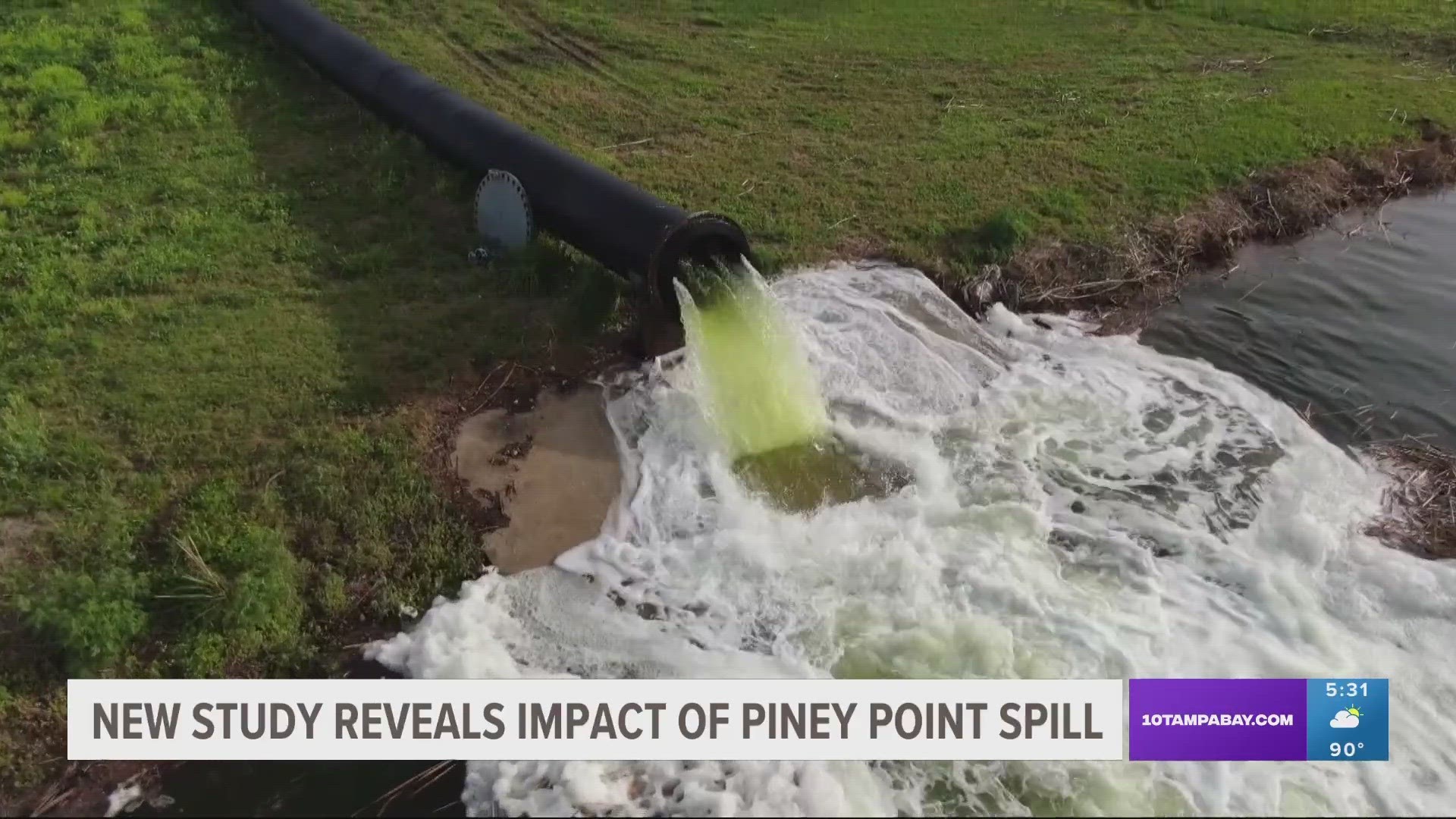MANATEE COUNTY, Fla. — Manatee County commissioners recently approved plans to construct a deep injection well at the former Piney Point phosphate processing plant. The more than $9 million project will take the remaining wastewater left inside the plant's reservoir and plunge it 3,000 feet underground.
The thought of hundreds of millions of gallons of waste being injected underneath the surface may sound like an "out of sight, out of mind" solution, but it's a pretty common practice for industries looking to store waste across the country.
Deep injection wells first became widely used in the 1930s when oil companies were looking for ways to dispose of brine. Twenty years later and chemical companies got in on the well action, sending industrial waste into a deep grave since it proved to be a cheap and relatively safe way of disposing hazardous byproducts.
As chemical manufacturing has grown, so too has the construction of deep injection wells. In fact, as recently as 2018, there have been 740,000 injection wells constructed across the country, according to the Environmental Protection Agency.
No two wells are the same. The EPA has six classifications for wells, each one storing a different type of waste below our feet. The most common well is a Class V, which holds non-hazardous fluids, like stormwater.
The industrial waste that's sitting in Piney Point's reservoir means the well Manatee County commissioners approved is a Class I. Operators of these types of wells are required to report the chemical and physical conditions every month to Florida's Department of Environmental Protection. Typically, the majority of deep injection well classifications are monitored by the EPA.
According to DEP, there are more than 180 Class I injection wells across Florida.
Federal officials insist that deep injection wells pose very little risk to the groundwater that sits above them. However, there have been several instances of wells failing and sewage seeping out. One such case happened here in Florida.
Back in the 1990s, in Miami-Dade County, dozens of disposal wells failed, releasing wastewater into aquifers that could be used to supply Miami's drinking water in the future.
A 2012 investigation by ProPublica revealed that, at the time, more than 200,000 well inspections found structural failures to be routine. Between 2007 and 2010, more than 17,000 integrity violations were issued nationally.
Commissioners did raise concerns for Manatee County's eventual injection well but felt there were few options left on the table.
"I’ve never been in favor of a deepwater injection well. I’m still not, but I think it’s fair to say at this point that we don’t have a choice," Commissioner Vanessa Baugh said.
A Fort Myers-based company, Youngquist Brothers, will lead the construction project. The company is one of the state's leading contractors for deep injection well systems.
What other people are reading right now:
- 'A turning point in history': Nation reacts after Derek Chauvin's guilty verdict
- How long will Derek Chauvin go to prison for George Floyd's murder?
- What happens next for the other officers charged in George Floyd's death?
- 'We are able to breathe again' | George Floyd's family reacts to Chauvin verdict, calls for police reform
- Broward County Schools superintendent charged with felony perjury
- Here's how to watch NASA, SpaceX's Crew-2 launch
►Breaking news and weather alerts: Get the free 10 Tampa Bay app
►Stay In the Know! Sign up now for the Brightside Blend Newsletter



